This article was co-authored by Rebecca Ward, LMFT, SEP, PCC, MA. Rebecca A. Ward, LMFT, SEP, PCC is the Founder of the Iris Institute, a San Francisco, California-based business focusing on using somatic expertise to teach individuals and groups the skills to deal with dilemmas using interventions, including her own Original Blueprint® method. Ms. Ward specializes in treating stress, anxiety, depression, and trauma. She is a Licensed Marriage and Family Therapist (LMFT), a Somatic Experiencing® Practitioner (SEP), and a Professional Certified Coach (PCC) accredited by the International Coach Federation (ICF). Rebecca holds an MA in Clinical Mental Health Counseling from Marymount University and an MA in Organizational Leadership from The George Washington University.
There are 9 references cited in this article, which can be found at the bottom of the page.
This article has been viewed 14,354 times.
When you hear the word “anxiety,” you might only think about the mental effects. However, you might also experience a number of physical symptoms when you feel anxious, including insomnia, headaches, muscle tension, rapid heart rate, and hyperventilation. If you’ve been experiencing physical symptoms from your anxiety, there are a number of steps you can take to improve your condition. Relaxation techniques can help control your heartrate and breathing when you feel anxious. Get a massage or use pain relievers to help with muscle tension and headaches. Finally, exercise regularly and practice a good diet to keep your overall health up. These strategies can help you overcome the physical symptoms of your anxiety.
Steps
Controlling Your Heartrate and Breathing
-
1Stop and count to 10 if you feel an anxiety attack coming on. The physical symptoms of anxiety include an increased heart rate, fast breathing, tensed muscles, sweating, and dizziness. Once you feel these symptoms starting, stop yourself. Close your eyes, try to block out the world, and count to 10. Focus on your breathing and count slowly. If you still feel your heart pounding, repeat the process and count to 20.[1]
- Try to remove yourself from the situation that was stressing you out. If you were arguing with your partner, for example, go to another room for a minute.
- If you’re at work or in a meeting, politely excuse yourself. Go to the bathroom or another room to calm yourself down.
-
2Do deep breathing exercises to stop hyperventilating. Hyperventilation is a major physical anxiety symptom. If you’re breathing fast, stop yourself and focus on taking long, deep breaths. Breathe in until you can’t anymore, hold it for a second, and then let it out slowly. Repeat this process until you have your breathing under control.[2]
- If it's possible, lay down on your back and place your hands on your stomach. Feel your torso rise and fall with each breath to keep yourself focused on breathing.
- Doing deep breathing exercises daily, even if you aren’t feeling anxiety, is good practice for when you have an anxiety attack. You’ll be ready to control your breathing more effectively when the time comes.
Advertisement -
3Distract yourself from anxiety with a fun activity. Sometimes the best way to get rid of your anxiety is with distraction. If you can, stop doing what was causing you anxiety and do something you enjoy instead. This gets your mind off the anxiety and helps relieve physical symptoms like a racing heart and hyperventilation. Later on, you can return to the stressful activity and try to accomplish it with a better frame of mind.[3]
- Good distraction activities are listening to music, exercising, walking, and playing an instrument or using your hands in some way.
- Avoid destructive distraction activities like using drugs or alcohol. These don’t remove the problem, and cause other health problems.
-
4Practice yoga or meditation to relax your body and mind. Both of these activities are helpful for relieving tension and reducing your heartrate. Make time every day for relaxation techniques like these to gradually reduce your anxiety symptoms. Even 15 minutes a day can ease your symptoms considerably.[4]
- Meditation is especially helpful in the morning before you leave for work. Taking some time to relax and prepare yourself for the day ahead helps you face down challenges more effectively.
- If you have trouble sleeping from anxiety, yoga and meditation in the evening can relax you and help you get to sleep better.
-
5Reduce your daily intake of caffeine. Caffeine naturally raises your heart rate and sometimes causes a slight jitter in your muscles. If you have anxiety, these effects can make your physical symptoms worse and even trigger a panic attack. If you regularly feel anxiety symptoms and drink caffeinated beverages regularly, try cutting down on your consumption. Scale back to 1/2 or 1/3 of your normal intake to reduce your heart rate and muscle tension.[5]
- Try to use decaf or low-caffeine alternatives to coffee and energy drinks, like herbal teas.
- Officially, 400 mg of caffeine daily is safe for adults, which is equal to about 4 cups of coffee. However, if you suffer from anxiety, then keep your consumption well below this. If you regularly have 3 cups in a day, try cutting your intake to 1.[6]
- Pay attention to the caffeine content in sodas and energy drinks. Some energy drinks have over a day’s worth of caffeine in one serving, so you may be getting more of a dose than you realize.
- Reducing your caffeine intake also helps you sleep better, which is also helpful for managing your anxiety symptoms.
Reducing Physical Pain
-
1Practice progressive muscle relaxation to relieve tension. Progressive muscle relaxation is a stress-relieving technique that gradually releases all of your tense muscles. Sit in a quiet place and take a few deep breaths. Then, tense each muscle in your body individually, and release it. Work through your whole body. Relaxing your muscles like this helps reduce your tension and overall stress. Practicing daily helps relax your muscles when you’re feeling stressed.[7]
- You can use this technique throughout the day if you feel anxiety attacks coming on. You may not even notice that you’re tensing your muscles.
- Pair muscle relaxation with deep breathing to reduce your overall anxiety.
-
2Have a massage to loosen your tight muscles. If you consistently tense your muscles from anxiety, then they may be sore and tight. A massage can help loosen this tension and reduce your pain. As an added bonus, feeling better physically can have a positive effect on your anxiety symptoms.
- Anxiety pain is common in your back and neck because people often tense these muscles when they’re anxious.
- Visit a professional massage therapist rather than having someone rub your back. A therapist knows how to manipulate your muscles properly for the right results.
-
3Avoid foods that upset your stomach. An upset stomach is another physical symptom of anxiety. This is often aggravated by certain foods, which is unique to each person. Pay attention to your diet and see if any foods make your symptoms worse. Limit or cut out these foods, especially if you’ve been feeling anxious lately.[8]
- Spicy foods commonly cause stomach upsets. Overly sugary food and drinks are another common culprit.
- If your stomach pain lasts for more than a few days at a time, see your doctor to rule out an underlying issue.
- Don’t use pain relievers for stomach pain. This can make symptoms worse, especially if you have an ulcer.[9]
-
4Take pain relievers to fight tension headaches. Tension headaches are common among people with anxiety. Besides regular relaxation techniques, OTC pain relievers can relieve these headaches. Take medication to help manage the pain while you work on reducing your overall anxiety.[10]
- Take pain relievers according to the product instructions. Taking too many can upset your stomach or cause other side effects.
- If you suffer from headaches every day, consider seeing your doctor. You may have an underlying medical issue causing them.
Keeping Your Health Up
-
1Eat a balanced diet to boost your immunity. Anxiety can suppress your immune system over time, leaving you susceptible to sickness and infections. Keep your immunity up with a healthy diet. Include fresh fruits and vegetables in every meal, and get lean proteins from healthy sources like fish and poultry. Similarly, avoid unhealthy processed foods that are high in salt and saturated fats, which can make anxiety worse.[11]
- Vitamins B, C, and E are especially important for your immune system. Good sources of these vitamins are berries, leafy green vegetables, beans, and bell peppers.
- Foods high in probiotics have shown some correlation with reduced stress. Eat plain Greek yogurt or take probiotic supplements to increase your intake.
- Don’t skip meals. Hunger can make your anxiety worse.
-
2Exercise regularly to reduce stress and improve your health. Exercise is a proven stress-reducer, so commit to exercising for at least 30 minutes 3-4 days per week. Aerobic exercises like running, biking, and swimming are best for reducing stress. This is an overall health benefit that will also improve your anxiety symptoms.[12]
- You don’t have to work out hard to enjoy these benefits. A 30-minute walk every day is great exercise.
- Playing sports is another great way to get exercise. Consider joining a local team to both get exercise and make new friends.
- Exercise also helps boost your immune system, improve your sleep, and reduce your resting heart rate, all of which are helpful for fighting anxiety.
-
3Get 8 hours of sleep every night. While sleeping with anxiety can be difficult, it’s important for improving your symptoms. Lack of sleep suppresses your immunity and makes your anxiety symptoms worse. There are a number of steps you can take to sleep better, even if you’re experiencing anxiety.[13]
- Do relaxation exercises before bed like yoga or meditation to help yourself fall asleep. Then do something quiet until you go to bed, like reading. Don’t look at screens before bed, because this can stimulate your brain and keep you awake.
- Avoid caffeine for at least 4 hours before bed. If you’re sensitive to caffeine, increase this time to 6 hours.
- Supplements like melatonin or herbal teas can help bring you to sleep naturally.
-
4Avoid using drugs, smoking, and alcohol to deal with your anxiety. While these activities can make you feel better momentarily, they are ultimately destructive ways to deal with anxiety. They hurt your overall health, depress your immune system, and make it harder to sleep. It’s best to cut down or eliminate these habits altogether.[14]
- Treating yourself with substances trains your brain to rely on them when you’re feeling anxiety. This can lead to addiction.
References
- ↑ https://adaa.org/tips
- ↑ https://www.betterhealth.vic.gov.au/health/conditionsandtreatments/anxiety-treatment-options
- ↑ https://adaa.org/tips
- ↑ Rebecca Ward, LMFT, SEP, PCC, MA. Licensed Therapist. Expert Interview. 29 May 2020.
- ↑ https://adaa.org/understanding-anxiety/related-illnesses/other-related-conditions/chronic-pain
- ↑ https://www.mayoclinic.org/healthy-lifestyle/nutrition-and-healthy-eating/in-depth/caffeine/art-20045678
- ↑ https://www.betterhealth.vic.gov.au/health/conditionsandtreatments/anxiety-treatment-options
- ↑ https://www.mayoclinic.org/diseases-conditions/generalized-anxiety-disorder/expert-answers/coping-with-anxiety/faq-20057987
- ↑ https://www.mayoclinic.org/symptoms/abdominal-pain/basics/when-to-see-doctor/sym-20050728
- ↑ https://www.mayoclinic.org/diseases-conditions/tension-headache/symptoms-causes/syc-20353977
- ↑ https://www.health.harvard.edu/blog/nutritional-strategies-to-ease-anxiety-201604139441
- ↑ Rebecca Ward, LMFT, SEP, PCC, MA. Licensed Therapist. Expert Interview. 29 May 2020.
- ↑ https://adaa.org/understanding-anxiety/related-illnesses/other-related-conditions/chronic-pain
- ↑ https://adaa.org/understanding-anxiety/related-illnesses/other-related-conditions/chronic-pain
- ↑ Rebecca Ward, LMFT, SEP, PCC, MA. Licensed Therapist. Expert Interview. 29 May 2020.
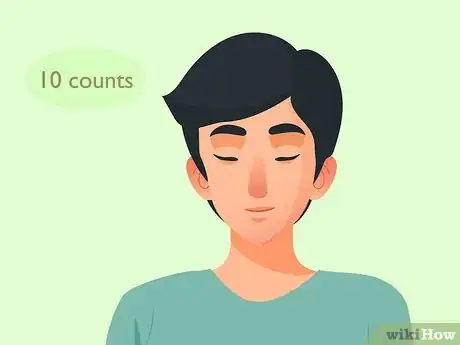
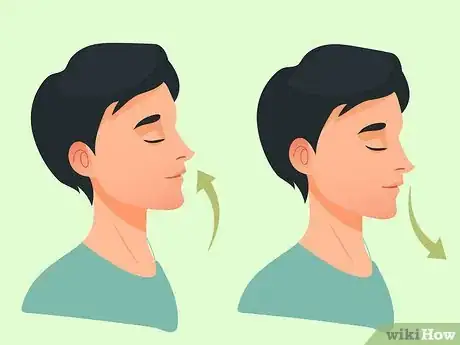
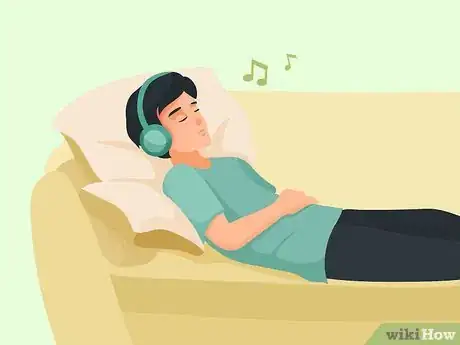
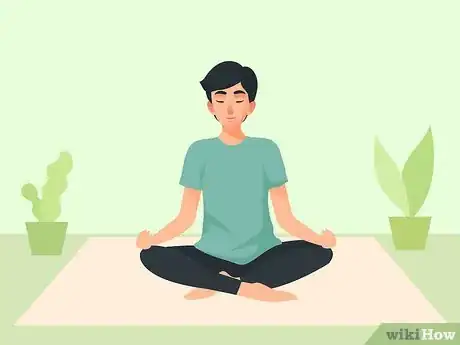

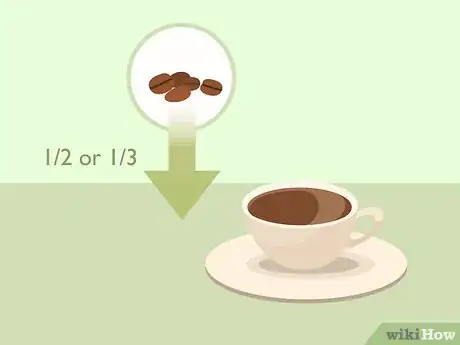
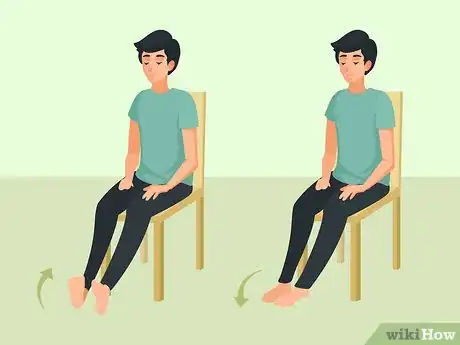
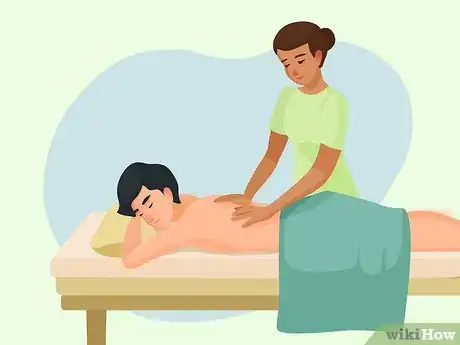
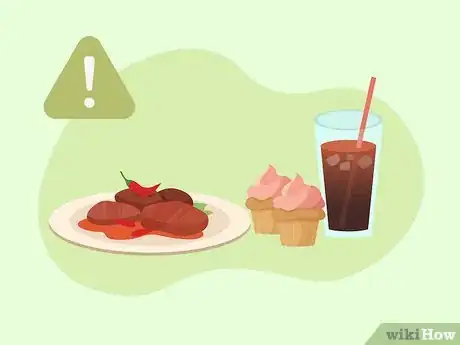
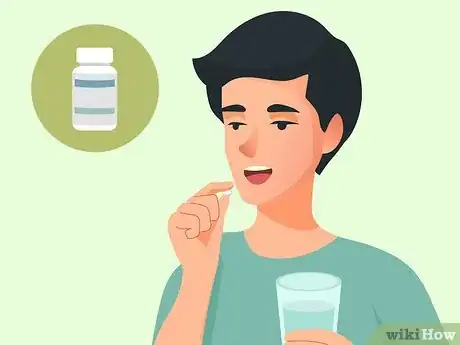
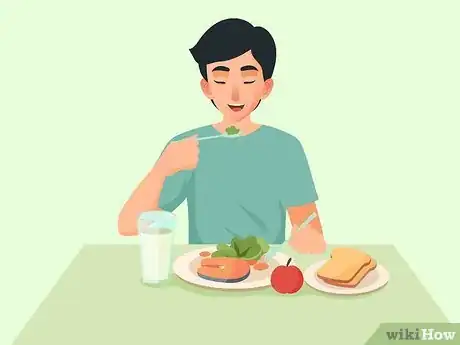
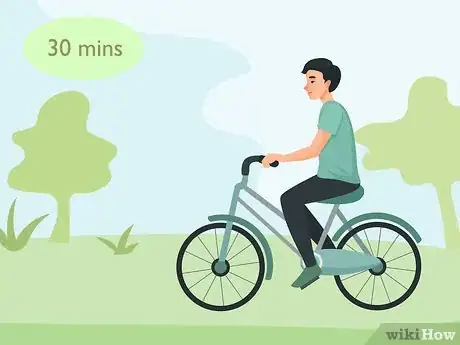
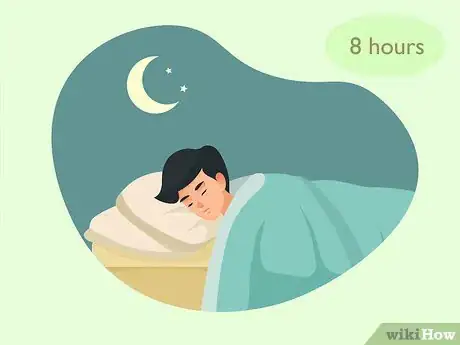
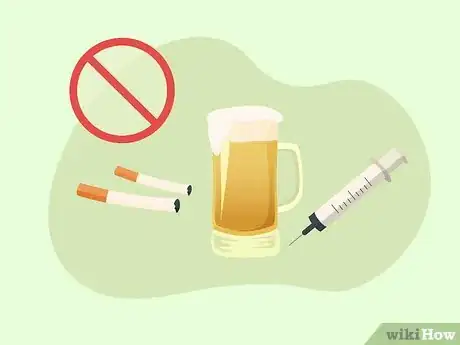




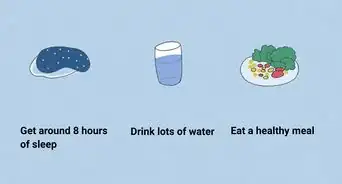
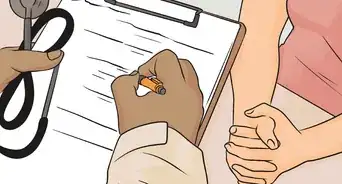







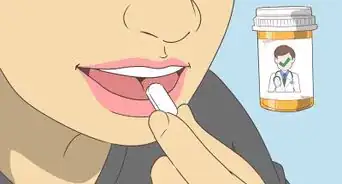













































Medical Disclaimer
The content of this article is not intended to be a substitute for professional medical advice, examination, diagnosis, or treatment. You should always contact your doctor or other qualified healthcare professional before starting, changing, or stopping any kind of health treatment.
Read More...